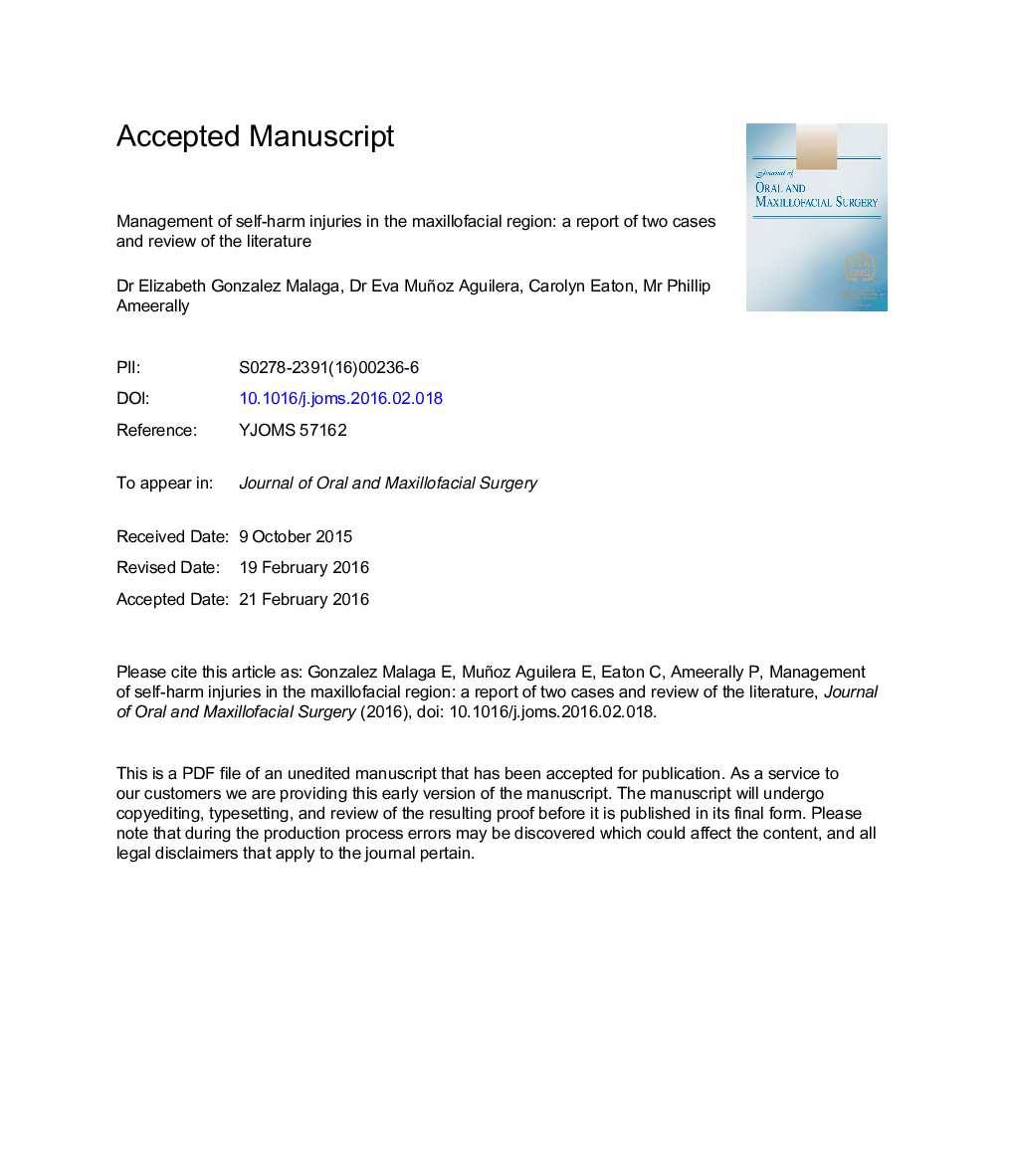| Article ID | Journal | Published Year | Pages | File Type |
|---|---|---|---|---|
| 6054282 | Journal of Oral and Maxillofacial Surgery | 2016 | 22 Pages |
Abstract
Clinicians face numerous challenges when managing psychiatric patients who self-inflict injuries within the maxillofacial region. In addition to a complex clinical examination, there are both surgical and psychiatric factors to consider, such as the risk of damaging vital structures, the exacerbation of the patient's psychiatric status, and the long-term psychosocial and esthetic sequelae. We present 2 cases of adolescents who repeatedly self-inflicted wounds and/or inserted foreign bodies (FBs) into the face, scalp, and neck. The different treatment modalities were based on full evaluation of the patient's clinical, medical, and diagnostic test findings coupled with a psychiatric assessment. The decision for conservative management or surgical intervention was made according to the presence and location of the FBs, degree of hemorrhage, signs and symptoms of infection, and unpleasant scars that could lead to long-term psychological impairment. In most cases, the FBs were removed and the wounds were toileted and closed under local or general anesthesia. We advocate a holistic approach via a multidisciplinary team, which is deemed essential to provide the highest quality of care for patients to reduce the risk of further relapses. Lastly, a satisfactory esthetic outcome is always paramount to achieve long-term psychological and physical welfare.
Related Topics
Health Sciences
Medicine and Dentistry
Dentistry, Oral Surgery and Medicine
Authors
Elizabeth Gonzalez BDS, MFDS, Eva Maria Muñoz BDS, MFDS, Carolyn BDS, MFDS, Phillip BDS, MBBS (Hons), FDS, FRCS,
